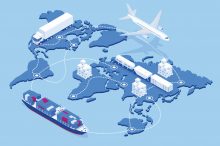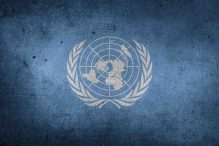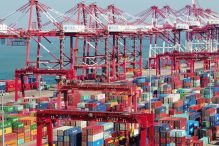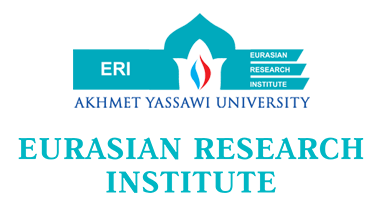The Need for Information Hygiene

Among the terms that appeared not so long ago, but firmly taking their place in today’s vocabulary, there is another one that sounds somewhat unusual – information hygiene. However, given that hygiene is not just a series of procedures, but science that studies how the external environment affects the human […]
How Innovative is the Eurasian Economic Union?

Innovation development is a priority policy in all member countries of the Eurasian Economic Union (EAEU). The EAEU members often host different international conferences, business forums and other events devoted to the popularization of innovations and new technologies. Countries implement programs and special policies, supported by experts of international development […]
Future of the Global Supply Chains

Globalization significantly affected international trade through the global supply chains. Multinational corporations from advanced economies started to produce goods in different developing countries through offshoring of manufacturing and were interested in global market liberalization. Many studies show that this pattern of trade leads to lower consumer prices, higher investment from […]
Future of Integration in Post-COVID-19 World

The world, by all indications, is experiencing a moment that can be called a great crisis. We can assume that it will be a turning point in modern history. For several months since the advent of COVID-19, analysts have been discussing what the world will be like after the pandemic. […]
Pandemic and Politics: Strategies of the Central Asian States

The ongoing COVID-19 pandemic has already infected almost 3 million people all over the world with more than 200,000 fatal cases, as of the end of April 2020. Although, for a long time, Central Asia was among the few regions in the world without registered positive coronavirus cases, since mid-March […]
Assessment of Oil Market: Price vs Market Factors

The recent events brought dramatic changes to the previous projections on the global oil market. On March 9 of 2020 the futures prices of oil tumbled by an astonishing 25% in one trading session setting a new record biggest daily drop within the last 30 years. The widely traded ICE […]
COVID-19 and Education: How Does Kazakhstan Face The Pandemic?

In the past few weeks, COVID-19 or, simply put, coronavirus affected 176 countries around the world. Due to the easily contagious condition of the virus, it has affected our daily life routines and operations of many sectors including construction, business, transport, manufacturing and education – in the way how students […]
Preschool Education: Responsibility and Needs

The importance of the early period in the lives of children, that is, from the moment of birth to the time they enter school, has become more clearly recognized by society in recent years, and all countries of the world. What previously seemed to be a purely family affair and […]
Pitfalls of Academic Mobility

The academic mobility of students today is one of the inevitable and acclaimed factors in the globalization of education, which for many countries is a conscious goal. In some countries, foreign students cover the shortage of local youth, enabling universities to preserve the existence of faculties, specialties, and traditions. It […]
US-China Trade War: Economic Causes and Consequences

The United States (US) under President Donald Trump revised its foreign economic policy. Since 2018, the United States started its protectionist policy towards its biggest trade partner China. According to the International Trade Center data (ITC, 2020) in 2018, the bilateral trade between these countries equaled $683 billion, of which […]
